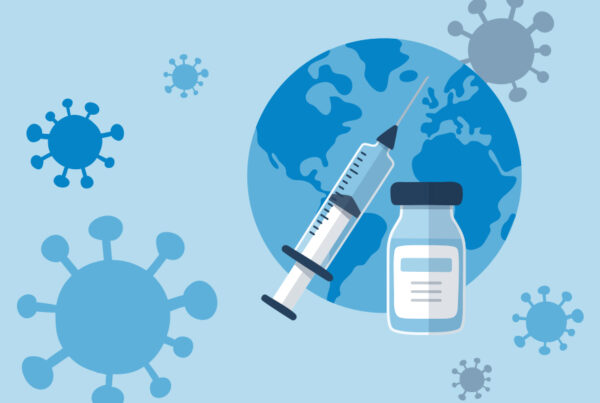India’s healthcare transformation is gradually paving the way for the country to assume a leadership role in global healthcare. Several key developments are contributing to this shift, positioning India as a growing force in global health initiatives, innovation, and collaboration. Here are some of the main factors driving this transformation:
1. Expansion of Healthcare Access and Infrastructure
- Ayushman Bharat Scheme: The launch of Ayushman Bharat, the world’s largest public health insurance scheme, is a significant milestone in India’s healthcare transformation. The scheme aims to provide health coverage to over 500 million people, offering financial protection against high medical costs, which could transform the healthcare access landscape in India and set an example for other developing nations.
- Improved Healthcare Facilities: The Indian government has also been working on improving healthcare infrastructure, particularly in rural and underserved areas. New hospitals, medical centers, and healthcare units are being developed under initiatives like the National Health Mission (NHM) and PMJAY (Pradhan Mantri Jan Arogya Yojana). This expanded reach to more regions, combined with technology, is helping India address its healthcare gaps.
2. Advances in Medical Research and Innovation
- Pharmaceutical Industry Leadership: India is one of the world’s largest producers of generic medicines, supplying over 50% of the world’s demand for vaccines. Indian pharmaceutical companies have become global leaders in affordable and high-quality drugs, contributing to global health by making essential medicines accessible to lower-income populations.
- Vaccine Production: India’s role in vaccine development has been critical during the COVID-19 pandemic. Serum Institute of India, the world’s largest vaccine manufacturer, played a central role in the production of the AstraZeneca vaccine, helping to meet global demand. India’s vaccine diplomacy helped distribute millions of vaccines to developing countries, strengthening its position as a global health leader.
- Medical Technology Innovation: India is increasingly becoming a hub for medical technology innovation, with the rise of healthtech startups. These startups are developing affordable diagnostic tools, telemedicine solutions, and AI-powered healthcare technologies that could transform healthcare delivery, both in India and globally.
3. Telemedicine and Digital Health
- Telemedicine Expansion: The adoption of telemedicine has surged in India, especially after the COVID-19 pandemic. India’s National Digital Health Mission (NDHM) aims to create a comprehensive digital health ecosystem that facilitates better access to healthcare services across the country. With innovations in teleconsultations, digital health records, and mobile health apps, India is leading in the development of digital health solutions that have global applicability, especially in low-resource settings.
- Affordable and Scalable Solutions: India’s healthcare digital solutions are often designed to be affordable and scalable, making them suitable for other emerging economies. India’s model of digital health, particularly in rural areas, is being recognized as a model for other countries, contributing to global healthcare transformation.
4. Global Health Diplomacy and Partnerships
- Global Health Initiatives: India has been actively involved in global health forums such as the World Health Organization (WHO) and the Global Fund to Fight AIDS, Tuberculosis, and Malaria. India has also been an advocate for increasing access to essential medicines and vaccines for developing countries. Its leadership in addressing global health issues, such as malaria and tuberculosis, has cemented its role in global health governance.
- Vaccine Diplomacy: During the COVID-19 pandemic, India demonstrated its global health leadership through vaccine diplomacy, supplying vaccines to numerous countries, particularly in Africa, Asia, and Latin America. India’s role in global immunization efforts further enhances its standing as a leader in health equity and global public health.
5. Healthcare Workforce Development
- Medical Education and Training: India has one of the largest healthcare workforces in the world, including doctors, nurses, pharmacists, and public health professionals. The country’s medical education system, which produces a large number of healthcare professionals every year, is also evolving to meet global standards. India is becoming an important provider of medical talent globally, with many Indian-trained doctors and nurses working in healthcare systems worldwide.
- Skill Development in Healthcare: India is focusing on improving the skills of its healthcare workers, particularly in areas such as public health, rural healthcare delivery, and specialized fields like geriatrics and palliative care. This investment in human capital will enhance India’s leadership role in the global healthcare workforce.
6. Focus on Universal Health Coverage (UHC)
- Commitment to UHC: India is committed to the goal of Universal Health Coverage (UHC), which aims to provide affordable, accessible, and quality healthcare to all citizens. The transformation toward UHC in India is being driven through both public and private sector initiatives. By scaling up health financing, improving primary healthcare systems, and expanding insurance schemes, India is aligning its healthcare system with global goals such as the Sustainable Development Goals (SDGs), particularly Goal 3 on ensuring good health and well-being for all.
- Innovative Financing Mechanisms: India is also experimenting with innovative models for financing healthcare, such as public-private partnerships, health insurance schemes, and targeted subsidies for low-income families. These efforts may serve as models for other developing nations looking to expand health coverage while managing costs.
7. Public Health Campaigns and Disease Control
- National Campaigns for Preventive Health: India is increasingly focusing on preventive health initiatives, addressing issues such as maternal and child health, immunization, sanitation, and non-communicable diseases (NCDs). Campaigns like the Swachh Bharat Mission (Clean India Mission) have not only improved sanitation within India but have provided lessons for global health improvement in areas related to hygiene and clean water.
- Tackling Infectious Diseases: India has made significant progress in the fight against infectious diseases, including polio, malaria, and tuberculosis. The country’s success in eradicating polio, for instance, has been a global health milestone, and its ongoing efforts to tackle other diseases are helping to set best practices in disease prevention and control for low- and middle-income countries.
8. Sustainability and Environmental Health
- Addressing Environmental Health Challenges: India’s leadership in promoting sustainable development is increasingly seen as integral to global health. By addressing environmental health challenges such as air pollution, waterborne diseases, and urbanization, India is making strides toward improving both public health and environmental outcomes, which have long-term global health implications.
- Climate Change and Health: India is focusing on the intersection of climate change and health, recognizing that environmental factors play a critical role in disease patterns, especially in vulnerable populations. The country’s actions in this area are contributing to global discussions on climate adaptation and its effects on health systems.
India’s healthcare transformation is creating a roadmap for the country to take on a leadership role in global health. By focusing on expanding access, embracing innovation, engaging in global health diplomacy, and improving healthcare delivery, India is setting an example for other countries, particularly in the developing world. As India continues to strengthen its healthcare systems and expand its global health influence, it will play an increasingly significant role in shaping the future of global health policy, innovation, and equity.



